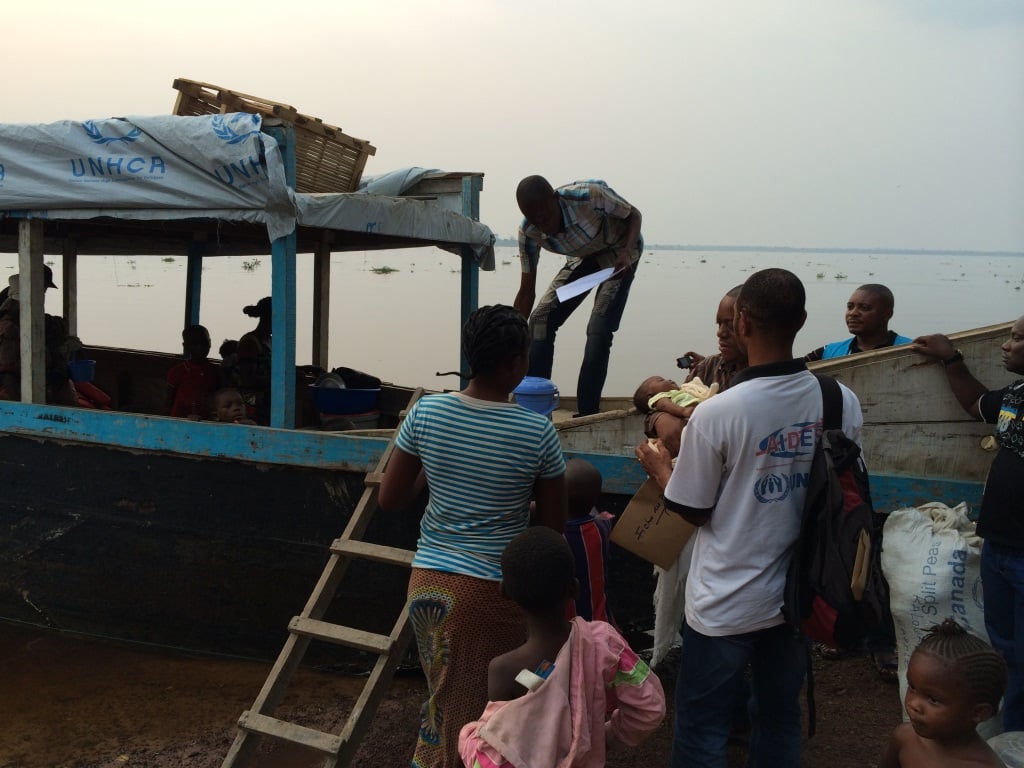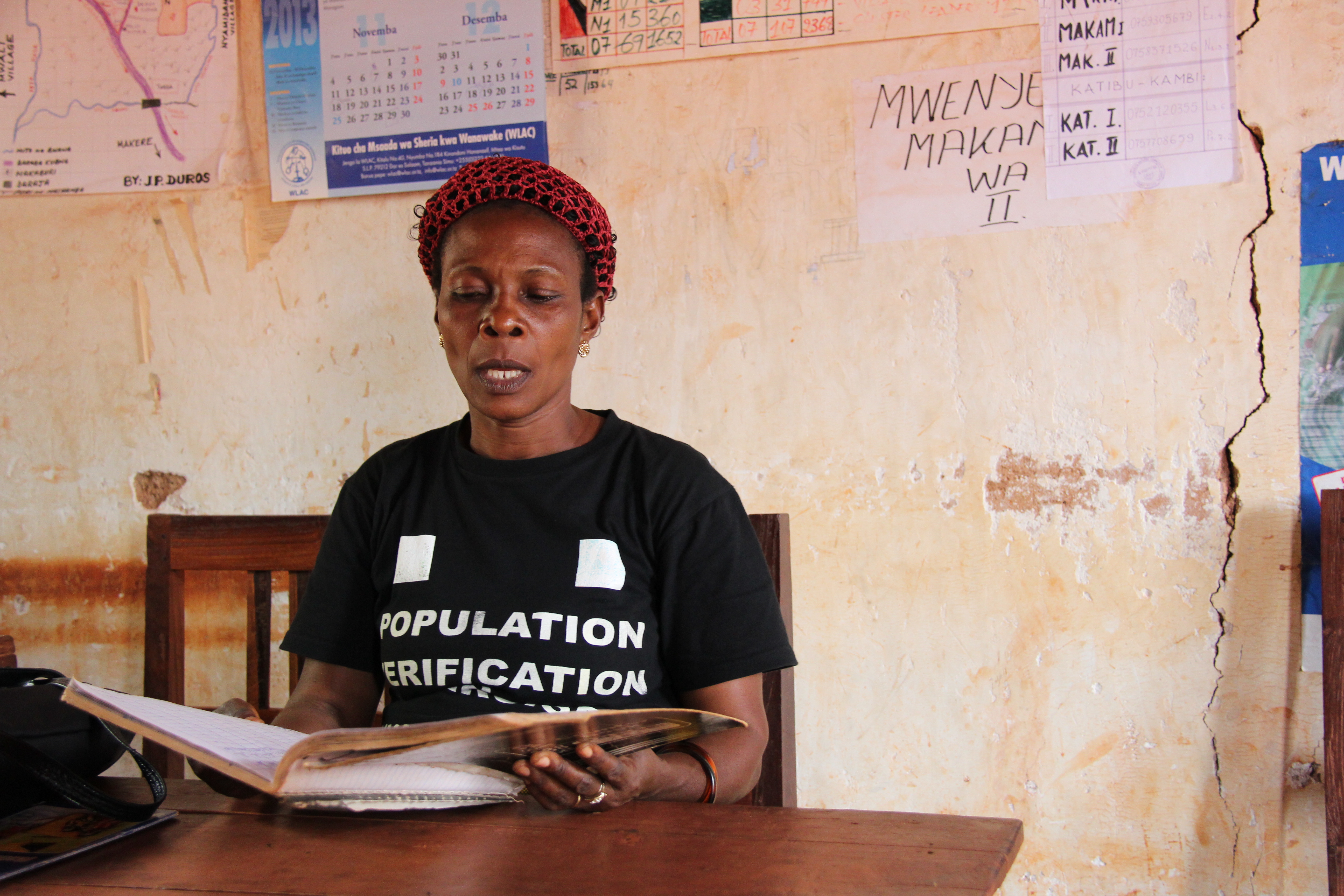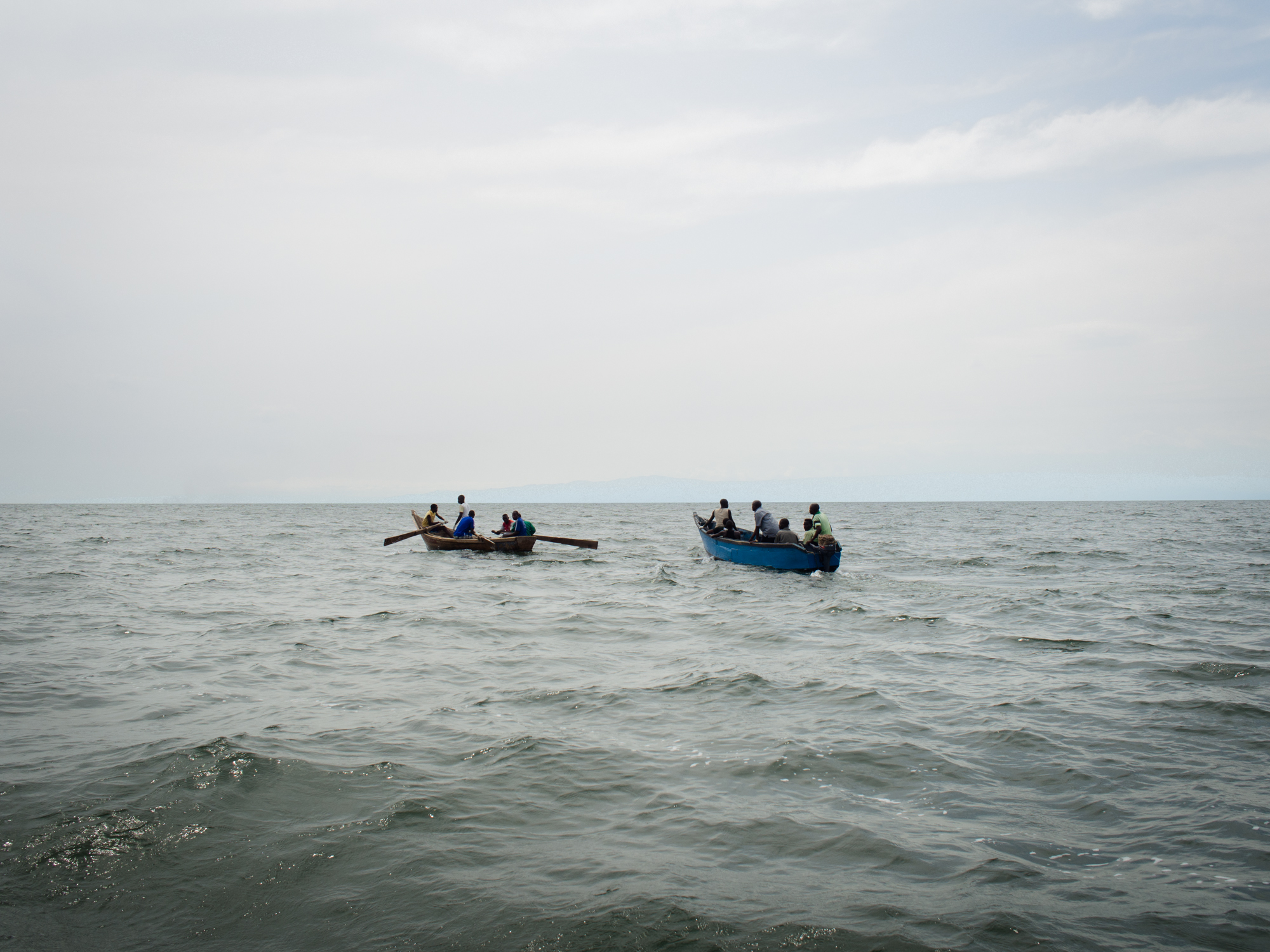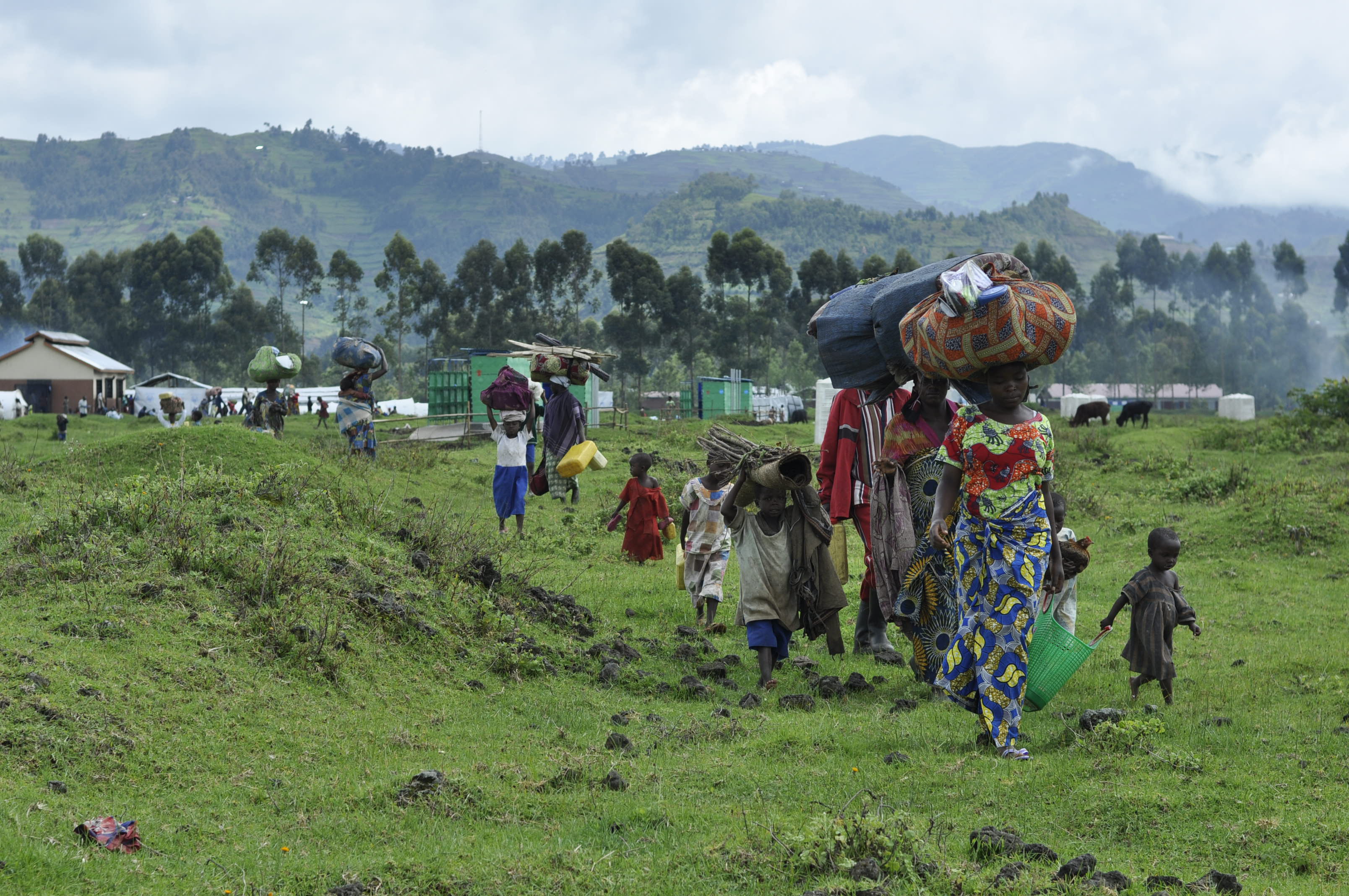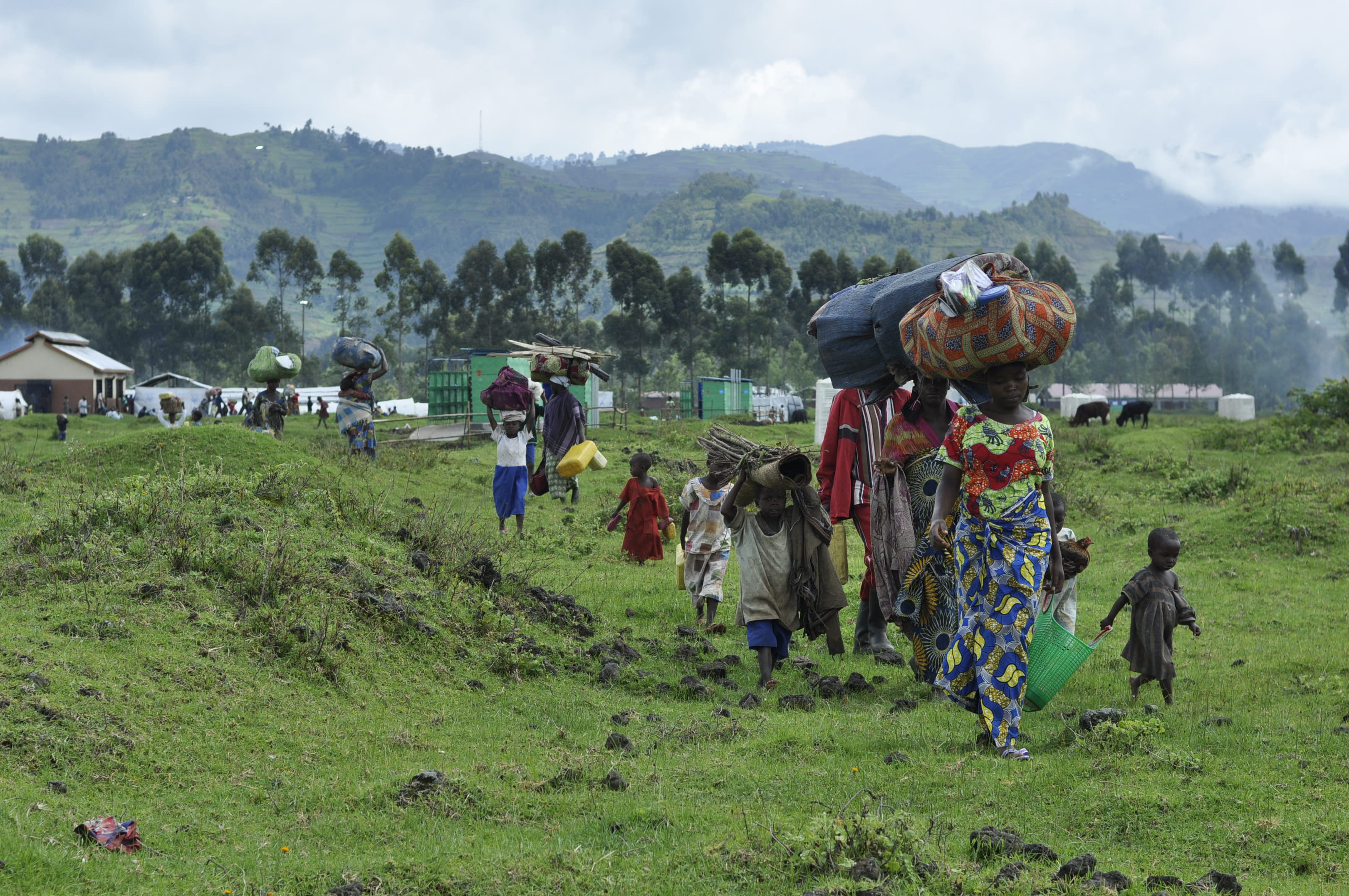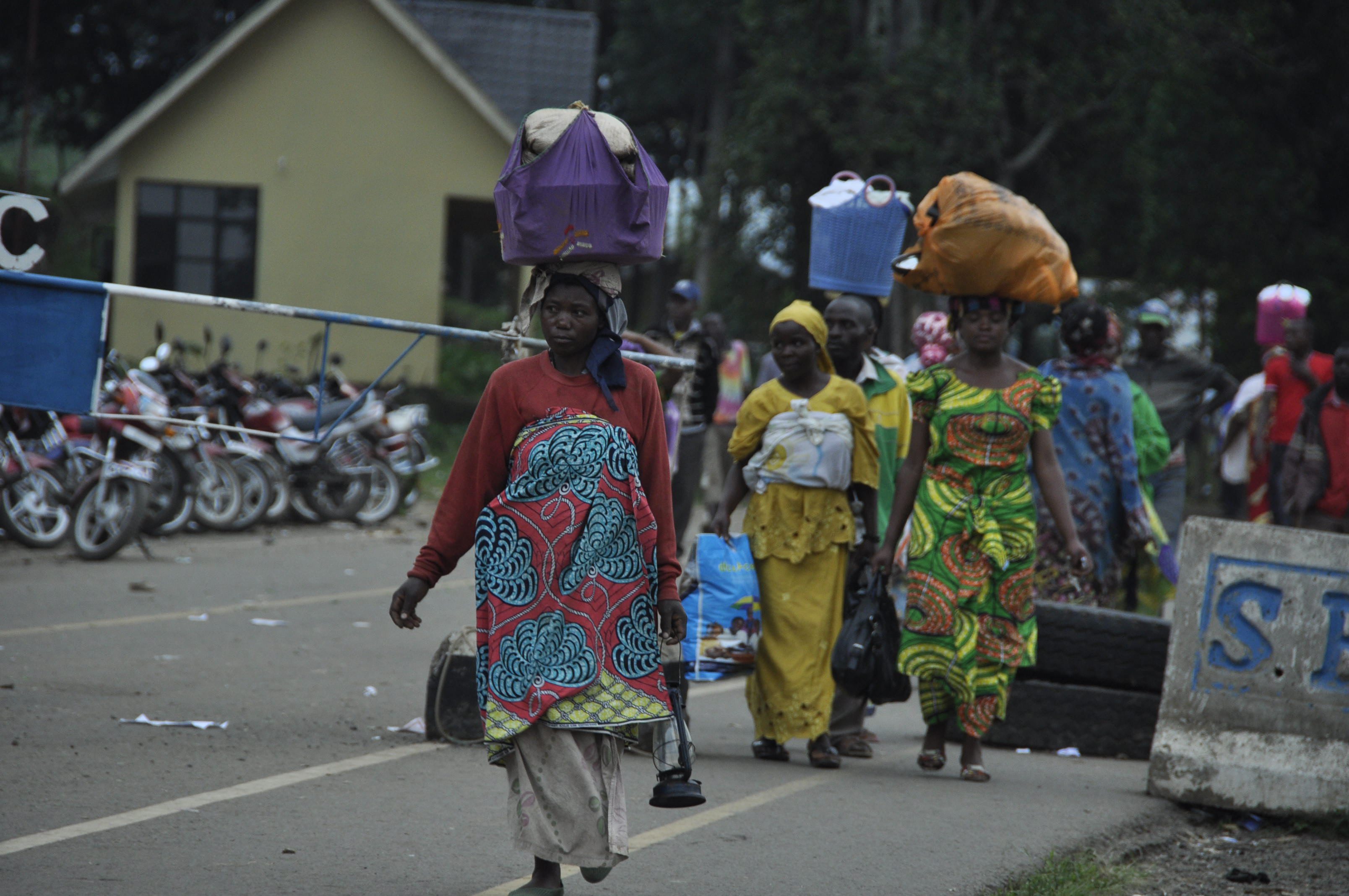On the run, alone and young: Congolese children flee to Uganda
On the run, alone and young: Congolese children flee to Uganda
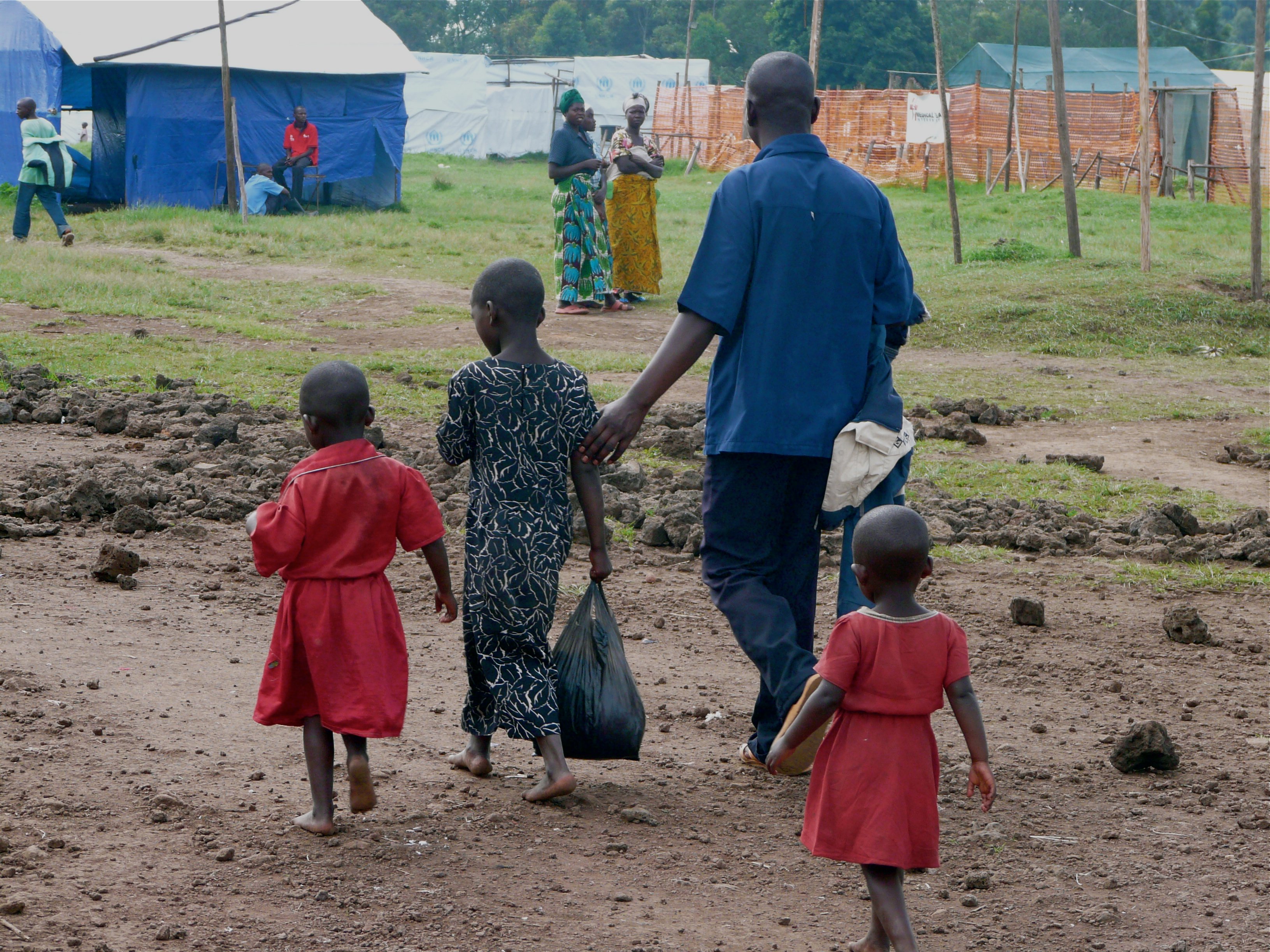
NYAKABANDE TRANSIT CENTRE, Uganda, February 7 (UNHCR) - UNHCR staff have become used to seeing children arriving on their own at the Nyakabande Transit Centre in recent months.
But they were stunned when young Congolese refugee Rachel* turned up with her six siblings and in need of help after fleeing to southern Uganda late last year. They were escaping fighting in neighbouring Democratic Republic of the Congo (DRC).
What most alarmed the UNHCR workers was that she was only three months old and had been looked after by an II-year-old - her sister Hope* - ever since the children were separated from their mother during fighting in November between DRC government troops and M23 rebels. The two sides began peace talks in Kampala last December after the Uganda government brokered a truce.
"She [Hope] was so responsible, caring for that child for one-and-a-half months in the transit centre - it was amazing," said Bernard Manishimwe of the Uganda Red Cross Society, adding: "Everyone around here nicknamed her 'the mother'."
Over the past few months, as waves of conflict and generalized violence swept eastern provinces of neighbouring Democratic Republic of the Congo, UNHCR staff have come across many unaccompanied children or youngsters separated from their parents during flight.
Even though, as Protection Assistant Gershom Mugerwa explained, close to 70 per cent of them "are reunited with parents or family members within a short time - often they find relatives already in the transit centre or their family turn up a day or so after them," it is an issue of great concern for the refugee agency.
And in mid-January, UNHCR staff were reminded of Hope when 12-year-old, Mary,* arrived at Nyakabande with her two younger sisters after an arduous journey from their home in DRC's Rutshuru territory. Their mother had died in childbirth and their grandmother, who looked after them, was too frail to make the journey.
Both cases had positive endings - Rachel and her siblings were matched up with a refugee foster carer in the transit centre and left the following day for the Rwamwanja settlement some 350 kilometres to the north - just as their mother reached Nyakabande. On hearing the news of her children, she immediately made her way to the settlement and was reunited with them.
Meanwhile, Mary and her sisters - Julia* aged eight years and five-year-old Clarisse* - were spotted by their uncle as they entered the transit centre and he is now caring for them while UNHCR tries to locate their father. But many of the Congolese children UNHCR comes across are not reunited with family and rely on the goodwill of refugee foster carers, who often have big families of their own.
The average age of Congolese children arriving alone at the border or at Nyakabande Transit Camp, 20 kilometres away, is 12-13 years and it's rare to see a child as young as Rachel. UNHCR and the Uganda Red Cross Society help identify these vulnerable children and give them the support and assistance they need.
But, as UNHCR's Mugerwa noted, because so many of the unaccompanied or separated children are soon reunited with family, it was often difficult to assess the true scale of the problem.
Once children are identified as being on their own, UNHCR and the Red Cross provide them with separate accommodation, clothes, recreational activities, assistance getting food (in some cases supplementary feeding) and medical and counselling support to help deal with trauma.
Efforts are quickly made to trace family members across the border in North Kivu province or in settlements in Uganda like Rwamwanja. The Uganda Red Cross operates a phone tracing service in Nyakabande where refugees can call or send text messages to their relatives. This service allows them to find out where they are and, most importantly for many refugees, to check their relatives are well.
For unaccompanied children aged under 10 years old or unable to look after themselves, UNHCR and the Red Cross look for a foster carer within the refugee community. These carers undergo stringent vetting procedures and are often from the same tribe or region as the children. In many cases the carers are members of their extended family who have also found their way to the transit centre.
UNHCR also works to reunite families that may have been split across different refugee settlements; reaching out to local communities and refugee leaders to help identify missing family members within the settlements. They then work with the Ugandan government to bring them together again. UNHCR relocated 38 unaccompanied children to Rwamwanja in the first three weeks of January.
Leaving your home and all you know is unimaginable for most of us, but for these children they may also be seeing their loved ones for the last time. "When you see them arriving tired, hungry, stressed and confused after 4-5 hours sitting in a truck, you can really sympathise with their plight," says UNHCR's Mugerwa.
* Names changed for protection reasons.
By Lucy Beck in Nyakabande Transit Centre, Uganda

